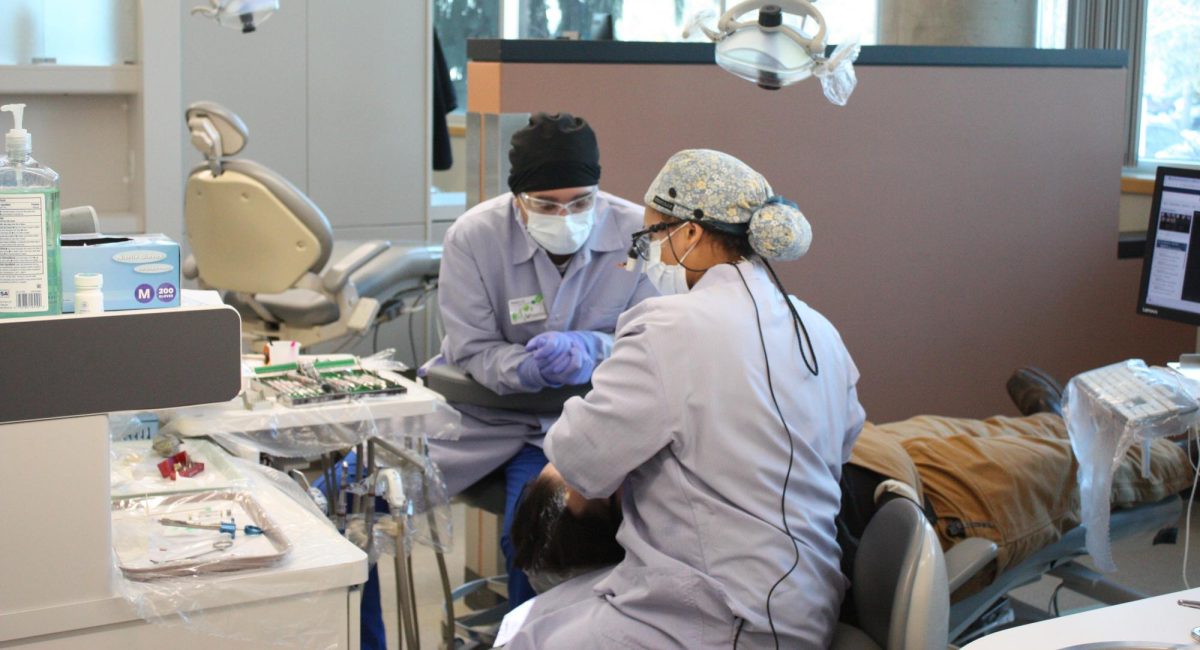Think hard before adopting a furry friend
February 9, 2015
Most of us have had a pet of one kind or another growing up, be it a dog, a cat, a bird or any other number of animals, so the urge to get a pet once we move off-campus or out of our parents’ house is an understandable one. But, not to sound too much like your mother, pets are a huge responsibility, and although they do provide borderline-unlimited love, they require a lot more than love in return.
I love my cat. I’ve had him for a little over a month and I’d already be completely devastated if anything happened to him. However, there are a lot of small, and not so small, expenses I never even considered before I adopted him. For example, even though I’d accounted for food and litter, I forgot about toys, visits to the vet and environmental updates. For a while after adopting him, I was fairly tight on money attempting to make up for those lapses in judgment.
EWU senior Andreana Polichronakis made the decision to adopt a dog in January 2014. “I never really thought I liked dogs, I was always kind of scared of them because I never had a pet growing up,” she said. “So last year, my boyfriend was telling me we should get a pet, so I was a little scared but also a little excited.”
Polichronakis quickly fell in love with her dog, Hercules, when she adopted him. “He changed my whole notion of pit bulls being scary,” she said. “He was the sweetest dog you could ever meet.”
Despite all the love she and her boyfriend had for Hercules, being a pet-owner wasn’t an easy task. “Being a student and having a pet was pretty hard. More hard on Hercules than me, because I wouldn’t have anyone to watch him so I’d have to leave him at home,” she said. Space constraints didn’t help.
Polichronakis lived in an apartment, so when she went to class or work, Hercules didn’t have a yard to run around in. She tried everything she could think of — keeping him in her bedroom, in the bathroom and eventually a cage — to keep him out of trouble when he got bored, but he always found a way out. “I think eventually he got so frustrated he was being left alone, so he ripped my carpet out,” said Polichronakis.
After a while, Polichronakis had a hard decision to make. “I knew he wanted more attention and I just couldn’t give it to him,” she said. “So what I thought would be the best solution would be to find him a better family — a family that could love him and have time for him. I thought he would be happier; it was the only reason I gave him away. It was the hardest thing I’ve ever had to do; it was like giving up a child.”
Although Polichronakis doesn’t regret getting Hercules, she knows now how hard it can be to own a pet as a student. She did everything in her power to make sure Hercules lived a good life and made the difficult but responsible decision to give him away. “I knew it was the best thing for him, even if it wasn’t the best thing for me,” she said.
Thinking about the pet’s quality of life, as well as your own, is a big part of deciding to adopt and so is considering the possibility you might not have the capabilities to effectively care for your pet.
Another danger of adopting a pet in college is the temporary nature of living in a college town. “There are students who are gonna adopt and are gonna be fine. But we have students who adopt and then a couple years down the line they come back like ‘Oh, I got a job offer in Chicago.’ … It’s something they should consider when they look at adopting,” said Jenna Carroll, director of foster, volunteering, outreach and social media for the Spokane Humane Society.
Moving halfway across the country to an entry-level job with a pet can be hard and giving up a pet you’ve grown to love isn’t any easier. “Hercules was the greatest pet you could’ve had,” said Polichronakis. “I wouldn’t want anyone else to go through that, so just make sure you’re able to take care of them.”
This isn’t to say college students shouldn’t have pets at all, but it’s important to make sure you’re thinking everything through before you decide to bring an animal into your life.
There are always other options if a student isn’t 100 percent sure about adopting or about their ability to care for an animal in the long-term. “Another option is the foster program, which allows you to take care of small pets who aren’t safe in shelters, [usually kittens] and then when they reach eight weeks, they go up for adoption and you don’t have to own a pet for years. And we pay for everything, so it’s no cost to you,” said Carroll.
All things considered, having a pet is a really good way to relax and have a warm, fuzzy friend who’s always there for you, but when considering getting a pet, think about the well-being of the pet just as much as your own well-being.
“Adopt if you think that’s the right choice, but think with your head and your heart,” said Carroll.








